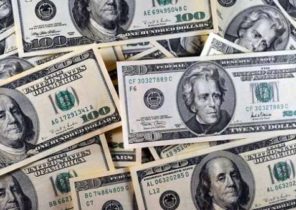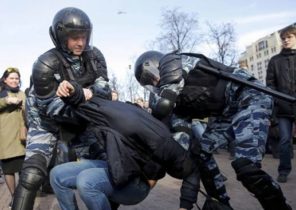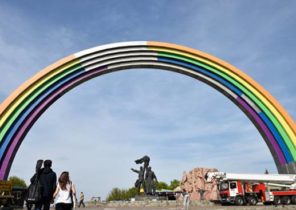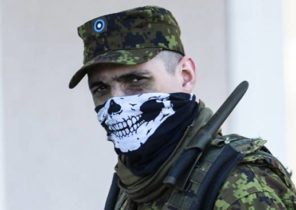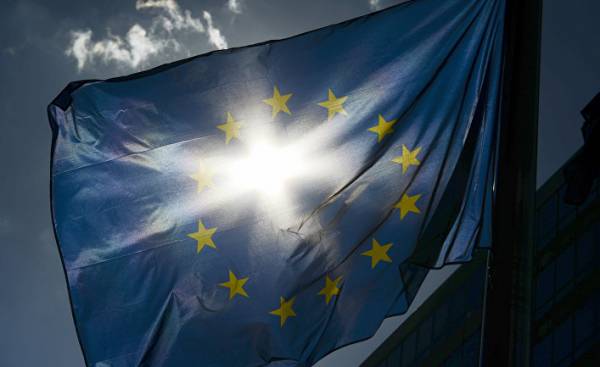
According to surveys, the happiest people in the world live in Europe. The best city in Europe. The best health care in Europe. It is in Europe most of the companies whose securities are traded on the stock exchange. It is Europe represent the majority of Olympic Champions. Until recently, Europe lacked only one thing: confidence.
Tired, old and worn out — that’s what view has been the majority of Europeans on their continent. Tired, old and worn — was in the majority of the speech devoted to the European Union. However, since on the other side of the Atlantic came to power, Donald trump, and much that was previously associated with the United States, from a legal state to free trade was called into question, in Europe, too, things have changed. Since the nationalists and populists threaten their own, the European values are rising and the forces opposed to them.
It is felt in Berlin, Vienna and Lisbon, where every weekend thousands of people come to the demonstration to Express their support for such a Europe.
This manifests itself in the speeches of European politicians, who suddenly started talking about the EU quite differently.
This significantly renewed economic growth on the continent.
Europe, which would seem to be just all written off, was suddenly a full-fledged option. Not an episode from the past, and a continent with a promising future. The alternative is for the United States and the authoritarian rulers of neighboring countries: Russia and Turkey. No longer have to explain the existential expediency of the EU — it is now explained as if instinctively. This is similar to the reconstruction of Europe.
Just as 60 years ago, when at a meeting in Rome, representatives of six European countries decided to unite. Haferkamp Renee (Renée Haferkamp) involved in the relevant preparations and remains presently one of the direct witnesses of those events. A gray-haired woman sits at home in Brussels at the dining table and looking out the window into my garden where the bloom of the first trees. She reminisces about the people who founded the EU and have become a part of history: the Belgian Field-Henri Spaak (Paul-Henri Spaak), the Frenchman Jean Monnet (Jean Monnet), the German Walter Hallstein (Walter Hallstein), who later became the first President of the European Commission.
“They were great Europeans,” says Haferkamp, bearing in mind their particular position: a strong belief that together you can go farther than alone.
When the evening of 25 March 1957 was signed the Treaty of Rome, the city was raining. Onlookers expecting politicians on Capitol hill, hiding under large black umbrellas. Around 18.00 arrived the first of them and hurried up the stairs and further into a chic lounge Horatii and Curiatii. There they were expected already by photographers to capture the main stage: serious people in dark suits, thick handles signing the “birth certificate” of the European Union.
The fact that the six countries soonawala the EU for the first time partially abandoned their own independence (and voluntary) that they have created the economic and the nuclear community, as well as the forerunner of the European Parliament and the European court of justice, was, on the one hand, due to the fact that excessive nationalism found its end. However, the decisive role was played by the enthusiasm of this group of realistic idealists. “They believed it,” recalls Renee Haferkamp. “They really believed that we can build a kind of United States of Europe”.
However, when the belief in this idea began to be lost? Renee Haferkamp responds, after a pause: “It happened gradually. The first doubts have appeared in the early 1960s when I accompanied the President of the European Commission Walter Hallstein and Fields-Henri Spaak, who was then foreign Minister of Belgium in Athens. There was scheduled signing of the Association agreement”. As the European Commission, as now, had no aircraft, its representatives have used aircraft of the Belgian guides.
Haferkamp told as the plane landed, the ramp was spread the red carpet, and Walter Hallstein going out. Because, after all, it was about Europe and Athens. “However, suddenly Spaak exposed elbow and pushed forward — exactly Spaak, who fought for Europe. Apparently, he thought that, as a representative of a member country of the EU were more important than students from Europe.”
“Europe is not such a “dummy” as many think”
Haferkamp continued to work in Brussels. She was and is familiar with all the presidents of the European Commission and with an even greater number of heads of government. And she was present when the first enthusiasm was replaced by “sobering up”. The Treaty of Rome became the European legal act of the community for 85 thousands of pages that nobody else was inspired. “Brussels” has become synonymous with “bureaucracy”. Even when the EU in 2012 received the Nobel peace prize, making statements against him were heard more than joyful: “it is the EU!”
And today, 60 years after the signing of the Treaty of Rome?
The area of Frankfurt full of people gathered there no less than three thousand people. When from the speakers came a song Insieme (“Together”), people “ran the wave”. Students and pensioners joined hands and began to dance. Others attending were waving flags of the EU or tied blue scarves with gold stars. They are like sports fans, who swear by true love for your club.
The club called the European Union. However, many recently, thought that he almost left the fans.
However, a few weeks ago in the square came the movement “the Pulse of Europe” (Puls of Europe). Now it covers about 60 cities, primarily in Germany and in the Netherlands, France, Portugal and even the UK. His supporters, which runs into tens of thousands, on Sundays, meet in Freiburg, Berlin or bad Kreuznach, in Lyon or Lisbon. Or fo Fracture where it all began.
A half hour before the start of the demonstration Sabina and Daniel Rederi quickly go through the town centre. “Pulse of Europe” — it is their invention. This idea has occurred to them one evening when they were sitting on the couch and rested with a glass of wine. They are both lawyers, both of them slightly more than 40 years, and they’ve never been organized on any demonstration. But now they founded a sort of political “startup” that can combine and make the streets more people than the protests of the opponents of European unity from the organization Pegida in her best times.
To do something couple decided after a positive referendum on the British exit from the EU and the victory of Donald trump at the election of the President of the United States. They feared that otherwise the EU could disintegrate in the Wake of the success of his enemies marine Le Pen and the party “Alternative for Germany” (ADH), Rederi came up with the call and posted it to Facebook. “We kind of resuscitation machine,” says Daniel Reder.
“Europe is really not so “dummy”, as many thought. We just need to re-fill it with emotions”. Unfortunately, the public are heard, “first and foremost, destructive and devastating voice,” wrote Rederi in Facebook. “Pulse of Europe” was intended to mobilize the silent majority.
At the demonstration in Frankfurt a trumpeter playing “Ode to joy” and the crowd starts to sing along with him. In a special kiosk anyone can get the “fan” paraphernalia: for a small donation you can take a balloon or a bracelet, painted in blue “EU” color, flags and larger flags, and even a wool cap with gold stars of the EU. Could this be a celebratory event? Yes, you can. But not only that.
Anyone can come to “Open MIC” and to make a three-minute address to the thousands assembled. On this day, we are talking about the success of Pro-European forces in the Netherlands, the democratic movement in Romania or what could be called “spring European revival of Brussels”. In this demonstration, there is almost no banners and posters. Only one of them says “Yes!” This is the main difference of this demonstration from any of the action Pegida, where the driving force is rage and the desire to humiliate others. People who come here, want to act not against something but for something.
The EU took a long time to find a new narrative. Once everything was clear: “We need to stick together to protect themselves. We are a peaceful Union.” However, at some point, the world has become something taken for granted. Distrust of the European project began to leave. The crises of recent years — from the Euro to the migration crisis — obviously gave the Union everything else.
New power bottom
Therefore, supporters of Europe came up with the following argument: in a world where developing countries become stronger and richer European countries will soon become too small to survive. Only joint efforts it is possible to prevent the situation when the solution for Europe would be to accept others. Similarly, reasoned and Jean Monnet: “Our countries have become too small for the modern world”, he wrote in 1954.
In the twenty-first century, this argument is even more valid than in the past, but he was hardly effective. The EU as a bunch of the weakening of nation States in times of globalization — it was petty, defensive comment that no one was interested. “Eurosceptics” it is not attracted because they are in such a hostile world it is based on their own people. “The Westerner” it is not attracted to, because they lacked the grandeur and nobility of intentions. But sober pragmatist even more sad it was hard to even imagine.
And then came Brakcet. And then there’s trump.
Exactly one month ago in Munich’s Bayerischer Hof hotel: the conference on security arrived a few senior us politicians. New Vice President Mike Pence, Secretary of defense John Mattis and the Minister for internal security John Kelly. With all the tension expected the speeches of the representatives of the trump. As well as the reaction of the EU.
After NATO Secretary General Jens Stoltenberg made the head of European diplomacy Federica Mogherini. In this position, she largely works with non-European countries than European, and all of a sudden she said something that became a surprise for most attendees.
According to her, the EU is in a much better condition than the Europeans themselves thought. Mogherini talked about human rights, loyalty to the laws, reliability, equality, the fight against climate change. In all of these areas all admire the EU, she said. About it she always say the interlocutors from non-European countries in the course of various negotiations. The pride of the EU? The rapture of the EU? Only need a step to go beyond it, and then the perspective will change.
Until recently, it seemed that the destructive nationalist furor after winning the trump in the United States will inevitably spread to Europe. Now we cannot say that the threat has disappeared completely, but it is noticeable that the forces opposed to the nationalists, greatly appreciated. First and foremost, it concerns the West — “old” EU countries. And it’s not only about the streets and squares, but also on the political arena. Most notably in France, where the danger is greatest. If standing on the extreme right positions of marine Le Pen in may will become President, it will be the end of the EU in the form in which we know it.
Since then, in 2005, the majority of the French voted in a referendum against the planned Constitution of the EU, Europe became the French political circles the topic is taboo. In France when something went wrong (and went very much not so), it was possible to make responsible the EU. Emmanuel macron (Emmanuel Macron) recently broke this unwritten rule of French politics. He simply ignores.
39-year-old presidential candidate completely at ease talking about Europe. He not only evasive the walls of the halls, where his meetings with voters, the flags of the EU. He has twice managed to visit Berlin and meet with German Chancellor Angela Merkel. He’s not afraid to get close to Germany though — or precisely why — his rival marine Le Pen never tires of talking about the dangers of “the German dictatorship” in Europe.
The Frenchman is not the first candidate in the elections, strongly contradicts the opponents of the EU. In Austria, the candidate of the green party Alexander van der Bellen called for openness and European cooperation and in the end won the election against the representative of the Party of freedom. In the parliamentary elections in the Netherlands also a large number of votes received by two Pro-European parties: the liberal party D66. And in Germany, the SPD candidate Martin Schulz draws on his side a lot when attacking the nationalists.
Even where seemingly no one expected, again waving the flags of the EU: in the East of Europe. In the beginning of the year in Romania, hundreds of thousands of people demonstrated against the government and for the European future of the country. If it were not for the EU, corrupt political circles of Romania never would have been such a strong pressure. According to the head of anti-corruption Agency Cevese Laura (Laura Kövesi), support from the EU is “fundamental” moment in her work. The tie is still not resolved, but without the EU, the Romanians would have been alone in their struggle against corruption and for the rule of law.
The harder the circumstances, the brighter the Shine 12 gold stars of the EU — in relation to Warsaw, it can be said, no less than with regard to Bucharest. While the Polish government is increasingly authoritarian and nationalist methods, Ryszard Petru (Petru Ryszard) referred to “our European friends” with just one open letter. Thanks to the EU, Poland has become better, wrote the Chairman of the liberal party “Nowoczesna” and assured that the majority of poles want to be part of “a strong and United Europe”. However, he did not rule out the country’s accession to the European monetary Union. Until recently, such statements amounted in Poland to political suicide.
The EU has long been accused that it is a “project elite”. The more I become discontent with the elites, the harder it became an attack on the EU. They were the main support for populists. Now it seems that the EU may get new strength is “bottom”. In many countries, support for the Union increased again.
Unexpected economic Renaissance
If citizens of all EU countries could vote for or against membership of their country in the Union, 70% of them would use “for”. This is evidenced by published the results of a survey of the Bertelsmann Foundation. In March 2016, this number was 65%. Even more clearly change of mood in the context of another question: 66% of EU citizens admitted that their friends or colleagues are positive about the EU. To Brexia the number was only 47%. And according to a survey commissioned by the banking Association, 61% of Germans have a high or very high opinion about the EU, which is five percentage points higher than the figures of three years ago and by ten percentage points — figures nine years ago. 63% believe that the Euro has proved its viability as a currency.
However, fundamental support for the EU does not automatically mean “free ticket” and especially a return to the old doctrine of “ever closer Union”. This is also confirmed by the results of the survey Bertelsmann. Because although many of the fundamentally positive assessment of the EU support for further political and economic integration in most countries have declined.
This paradox was noticed and in Brussels. Even where the routine is especially strong and pathos often sounded quite loud, now hear a different tone. Too often the debate on the future of Europe reduced only to the choice between “more” and “less Europe”, wrote Jean-Claude Juncker, the recently published White paper. According to the President of the European Commission, it is “incorrect and too simple” question.
Subordinate cadets have developed five different scenarios: from the “downgrading” of the EU to ordinary common market to further deepen cooperation, particularly in the areas of defence and taxation. Angela Merkel is also in favor of such a Union, to which different members had opportunities for the development of “different speeds”. Merkel and Juncker want to use the new splash, not getting more into the old trap.
And something new and unusual: political awakening happens against the background of unexpected economic Renaissance. After a long crisis, all EU countries are experiencing economic growth. The mood of the business community improving, declining budget deficits and unemployment rates. Over the past four years was created almost five million new jobs, not only in prosperous Germany but also in France, Ireland, Spain and the ever-troubled Greece.
The consequences of the crisis has been overcome, not everywhere, but to say that “sclerotic” Europe is unable to compete with the US and China, more inappropriate. According to the OECD, in the past years, Spain, Greece, Portugal, Ireland and Poland were among the world leaders in the implementation of economic reforms. The economy of the Euro area countries last year grew faster than the U.S. economy.
While supposedly the weakness of the EU in the light of populist temptations appears increasingly advantage locations: more and more international investors appreciate the model of European “social state” with relatively high taxes and more rights of employees. It prevents “the gap between elites and the rest of the population”, as it happens in the U.S., said Philip Hildebrand (Philipp Hildebrand) Vice-President of the world’s largest management company Blackrock, which turnover is over five trillion dollars and which engaged in many large companies in the world.
This remarkable change of heart, considering that in the past decades, financial capital has actively sought to ensure that this side of the Atlantic capitalism is established “wild West” on the American model.
From the crisis region into a model of the future is so unexpected metamorphosis that it can easily distract us from the mass of unsolved problems. The economy certainly is growing again, but this growth is still fragile. Enterprises create new jobs, but unemployment remains high, especially among young people. The EU although has found a new raison d’être, but if we look closely, we find that the old conflicts flare up again and again, whether in connection with the migration crisis or monetary policy. And in Poland, the ongoing destruction of the legal state.
However, where and when there are no disputes in politics? And perhaps the key moment in relations with the European euphoria is that problems are solved easier when all the stakeholders are committed to success. So, Paris and Berlin have already secretly working on the script reforms of the monetary Union with the aim of preventing future crises. According to these scenarios, France will allow the Brussels authorities more control over its trade policy, and Germany will provide more funds for the implementation of pan-European initiatives. And who said that this model is impossible to achieve success also in areas such as security or foreign policy?
“Parents” initiatives “Pulse of Europe”, in any case, in its own way already tired of “Europe”. On the one hand, they are very happy that their movement is based just eight weeks ago, when on Goetheplatz square has gathered 200 people, is increasing day by day. On the other hand, they therefore lack of sleep. “We have already received requests from 40 other cities,” says Daniel Reder. A few days ago, the movement opened a small office in Frankfurt. There will be coordinated actions of many local offices that, for example, means that in Rome or Genoa will have to figure out who on behalf of the “Pulse of Europe” were calling for flash mobs.
However, surprisingly, Sabine and Daniel Rederi is in no way associated with the official structures of the EU. They have never been students of the universities participating in the Erasmus program or members of the European Association of law students. They also had nothing in common with the European elite, easily “pushes” the “code names” of cities like Maastricht, Schengen, Bologna, nice, Lisbon. “We grew up with the main European idea”, said Daniel Rader, “who was for us something self-evident.”
If all of the above does not deceive us, Europe seems to be experiencing a new beginning.
